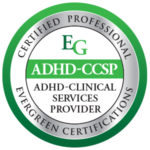Enhancing Your Sessions

One of the hardest parts of the therapy process is finding the right therapist for you. Though daunting and perhaps petrifying, it’s important to remind yourself of why you decided to do this in the first place – because you want to become better in some capacity or another. Once that’s done, part of the work is already complete and you have embarked on your personal journey to self-improvement.
Therapy is all about setting goals while having realistic expectations for yourself. However, specifically in this article, it is the process of therapy that will be discussed. Preparing for your first session and all subsequent sessions is an integral part of using therapy to its fullest potential. What prompted me to write about this is that so many times, especially through telehealth, I see clients distracted with different kinds of interruptions (i.e. kids, pets, emails, etc.). I also see that people may not be fully present and mindful in session and may be thinking about other things, like tasks they need to get done etc. It is understood that there are interruptions, especially when we are in our own environments, that are outside of our control, but it is important to set boundaries and limits. Therapy is for you and it’s important to respect yourself enough to give yourself that time. This article will jump around through different suggestions and tools to help you get the most from your sessions with your therapist.
Some guidelines for therapy are to begin and end each session with a mindfulness exercise, whether that be meditation or some form of breathwork – check your energy. What are you coming into session feeling? Bring in all of your emotions into the session as necessary: tears, anger, fear, shame, and joy – bring them all. What emotions stand out to you? What emotions are you not sharing? Embrace the emotions and share them with your therapist. Process those emotions, no matter how difficult, so the emotions don’t consume you.
Personally, I recommend coming to session hydrated and having had at least something to eat at some point before session. You should also probably use the bathroom ahead of time, as to avoid disruptions in session (again, understanding that sometimes things are outside of our control, myself included!). This will help with focusing on the session and tasks at hand. Bringing cold water to session to sip throughout, is another great tool to utilize, as the temperature of the water can help with alertness. If you are drinking coffee, try decaf, or half-caf, for those of us who experience anxiety.
One of the biggest distractions, specifically during virtual sessions, is that people are often checking other tabs or checking emails/texts. Through mindfulness-based therapy, clients gain three essential skills: self-regulation (the ability to be self-aware and to self-soothe in situations of emotional intensity); self-state awareness (the ability to identify habitual coping strategies and step out of them); and self-compassion (the practice of diffusing shame and self-criticism through a deeper form of self-acceptance). It’s important to be present during sessions in order to really be able to process and explore deeper emotions, patterns, and problem solving tools. This is your time, you deserve it!
Another great tip to maximize the efficacy of therapy is to be mindful of how much “venting” you are doing. Try to keep the focus on yourself. Having the opportunity to vent about what others have done wrong feels great at times. Your therapist’s empathy and validation are essential in this stage. It is, however, necessary to step back into a different perspective and see how you can consider the situation differently in the future. It’s also important to exercise compassion for yourself whilst also taking accountability for your behaviors in order to grow and modify behaviors. Being present in session is crucial in being able to identify themes and patterns in your life. Connecting the dots between events and comprehending how our personalities and responses impact our wellbeing are key components of good therapy.
Finally, it’s not just important to be present during sessions in order to made progress, but continuing the work outside of session as well, applying the knowledge and skills to your everyday life. This can take the form of specific assignments or actually practicing the tools in your interactions with others based on how you want to behave in certain situations going forward. Also, meditation, exercise, support groups, community, and creative work can all help you to actualize the change you’ve been discussing in your sessions. See your obstacles, no matter how minor, as chances for development. Once you are aware of your triggers, embrace these circumstances as chances to change how you respond vs. react.
Using even a few of these points can help you not only overcome symptoms, but it can also help you develop fuller, more wholesome sessions. You can be confident that your efforts in therapy will be successful if you are implementing these tips. Please don’t feel obligated to use all of these recommendations or that you must strictly abide by them. It may take some time to master these, but that’s all right. The fact that they are used is what gives treatment it’s potential.
I hope this article has helped with learning how to best prepare and utilize sessions to their fullest.





